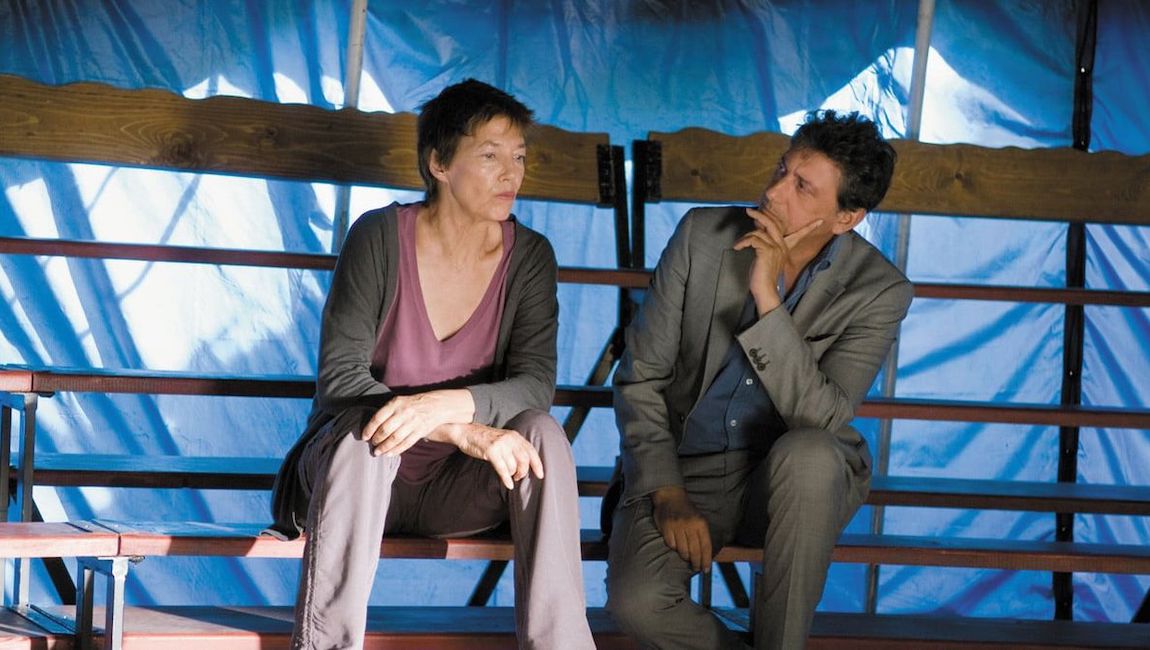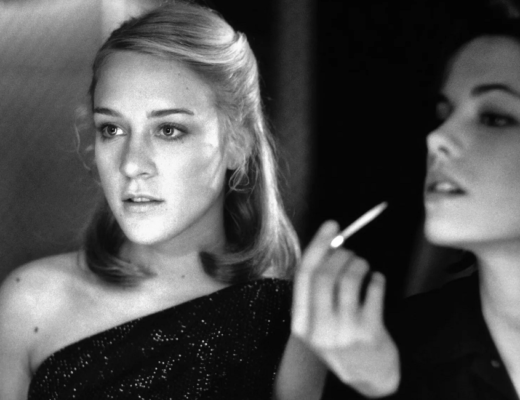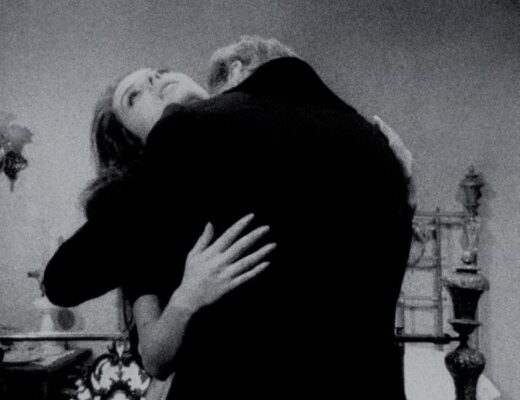Toward the end of Jacques Rivette’s Around a Small Mountain, one of the film’s cast of circus performers botches a routine. As part of an improvised attempt to save the act, the performer tells the tiny crowd that the stage is “the most dangerous place in the world, but also the place where anything is possible.” That tension has driven the majority of Rivette’s work since his start with the French New Wave, an oeuvre defined by the ways in which it reflects, refracts, and comments upon reality through its relationship to theater and performance. It’s a philosophically heady body of work, and one not always for the faint of heart or tender of ass; Céline and Julie Go Boating, perhaps his best-known film, is more than three hours long, and that’s still just a blip next to his twelve-hour Out 1, noli me tangere. Around a Small Mountain, by comparison, is downright welcoming. At less than 90 minutes, it’s his shortest film by nearly an hour, and it finds the 82-year-old director in a playful mood, exploring his pet themes casually, with no lack of intellectual heft or formal rigor. The film’s French title, which translates to 36 Views of Saint-Loup Peak, speaks to Rivette’s approach here, which is glancing and suggestive but also warm, open-hearted, and ultimately quite moving.
Taking place within the shadow of its titular mountain, the film focuses on a traveling circus troupe on its last tour, visiting small towns where its clowns, strongmen, and acrobats perform for empty audiences. “We’re the last classics,” says head clown Alexandre (André Marcon) at one point, and that sense of wistful melancholy drives the film. It begins with a breakdown. Kate (Jane Birkin), a one-time performer with the troupe returning to the circus after a decades-long absence, is stranded on the side of the road after her car dies. She is rescued by Vittorio (Sergio Castellito), who restarts her car and drives off, all without saying a single word. Back in town, Kate meets Vittorio again (“One is easily silent when driving alone,” he quips) and invites him to that evening’s performance. There’s the sense of a lost soul in both Kate and Vittorio. Vittorio is a wanderer, a displaced Italian traveling from town to town; whether he’s searching for something or running away is never quite clear, though there are the vaguest suggestions of some past trauma. Kate’s tragedy is clearer. She left the troupe following the in-performance death of her lover, an accident by which she is still haunted.
Some critics have called this scenario slight, but Rivette isn’t interested in heavy melodrama. As Vittorio, pursuing Kate, integrates himself into the circus community, Rivette hints at the performers’ individual histories, relationships, and sadnesses, creating a mood at once playful and sensitive to his characters’ inner lives. Around a Small Mountain is a film of small measures, of glances and gestures, of suggestive dialogue and wistful smiles, constantly gesturing outward, pointing at and opening into greater arenas of thought and emotion just off-screen. Rivette and cinematographer Irina Lubtchansky, through long shots and graceful lateral pans, establish screen space as a stage on which the film’s inhabitants play out the comedies and tragedies of their lives. It’s playful and fun, but it’s also sad. Or, as Rivette suggests in a late-film moment of bracing and gleeful theatricality, all’s well that ends well, unless you’re still alone by the time the curtain falls. As Around a Small Mountain draws to a close, Vittorio and Kate, about to go their separate ways, discuss the possibility of meeting later in life, but the best they can do is an uncertain, but somehow hopeful, “Who knows?”—which, in life, is about the best you can ever do. It’s the most dangerous place in the world, and anything is possible.







